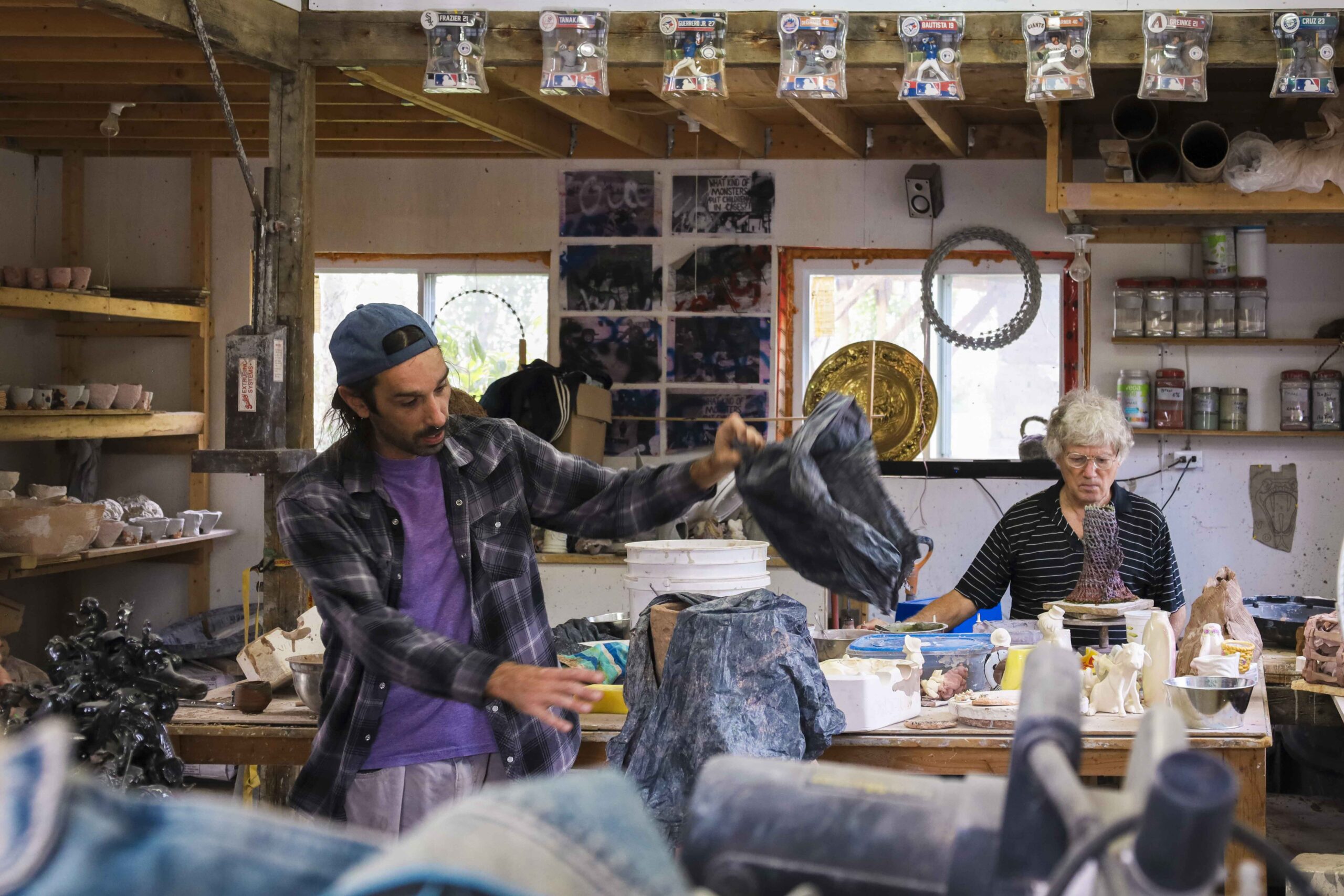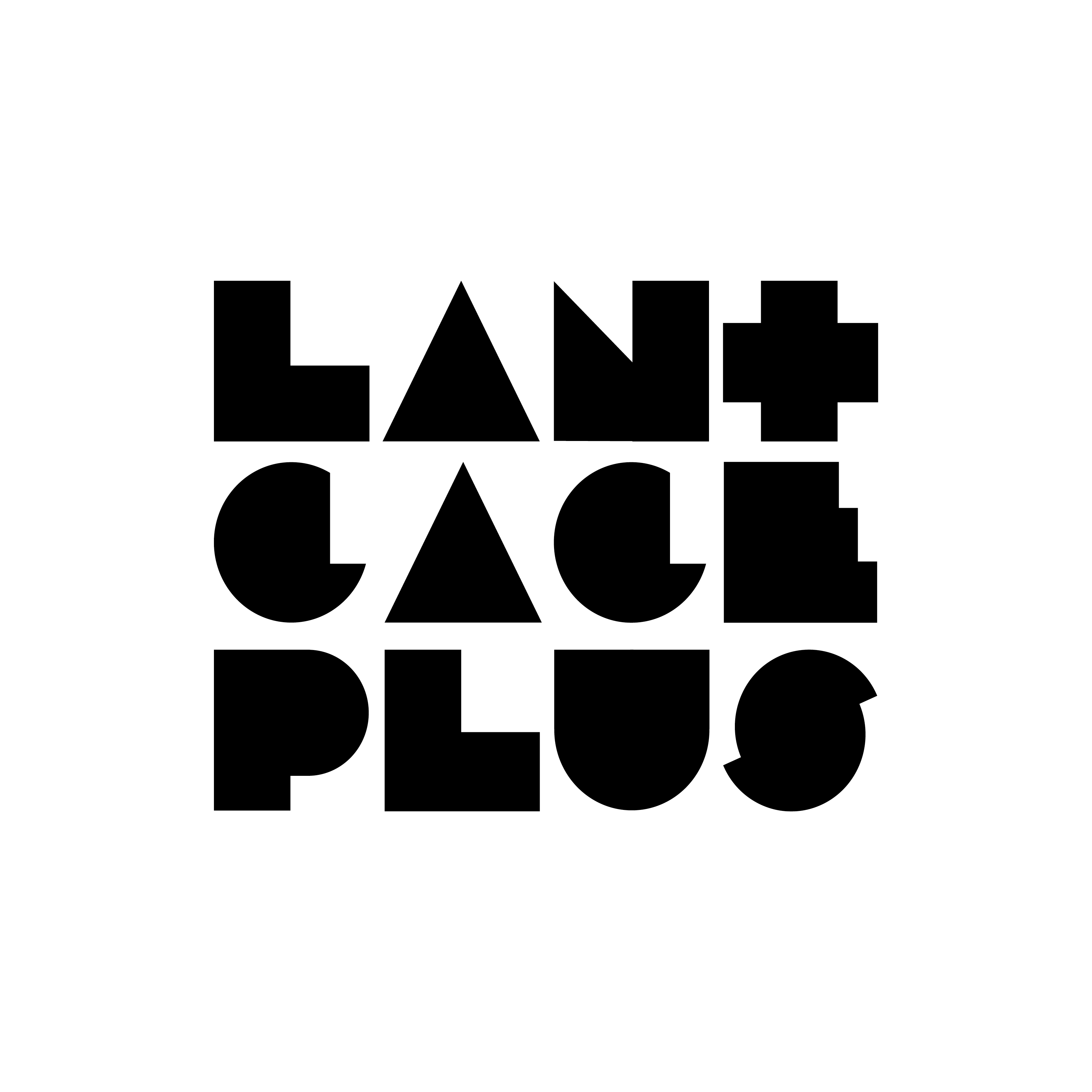
Contamination et matérialité culturelle
László FEKETE (Budapest) et Yanik POTVIN (Hébertville)
Exposition, Résidence, Terminé(e)
Du 15 septembre 2023 au 26 novembre 2023
Toutes les salles
Vernisage le 15 septembre 2023, 17:00
FR
Que serait un « exercice expérimental sur l’identité culturelle de la matérialité » ? À l’issue d’une longue correspondance impliquant Yanik Potvin, artiste oeuvrant en céramique actuelle basé à Hébertville, et une de ses influences, László Fekete, artiste de Budapest reconnu mondialement dans le milieu de la céramique, l’idée d’une rencontre improbable entre deux générations de céramistes s’est dessinée.
Se voir à l’œuvre dans un atelier partagé à Hébertville pendant un mois pose les bases d’une contamination. L’exercice expérimental, c’est adapter le médium céramique au contexte de création local, au type d’argile trouvé en sol nord-américain, aux conditions météorologiques permettant le séchage des pièces et la cuisson au bois. L’identité culturelle dont il est question est riche de l’histoire d’un pays et d’un passé familial marqués par la répression et une succession de dominations étrangères, de traditions céramiques, ou encore de grands questionnements anthropologiques sur l’humain et la matière, la déconstruction de l’objet céramique et des concepts qui l’entourent. Comment toutes ces données viennent s’entremêler au cours du processus de création de l’objet, là où se trouverait peut-être sa vraie valeur?
Une chose demeure invariable : se salir les deux mains dans l’argile reste le point de rencontre de Fekete et Potvin, les ramenant à des réminiscences d’enfance qui expliquent l’amour dissident qu’ils portent envers le médium céramique et la remise en perspective de ses conventions.
LES ARTISTES
L’artiste contemporain hongrois de renommée László Fekete a émergé dans le contexte de la culture d’après-guerre. Sa pratique artistique offre un commentaire sur les transferts successifs de pouvoir en Hongrie en retravaillant des pièces céramiques existantes et des matériaux trouvés, en particulier ceux de la Porcelaine Herend, pour créer des œuvres sardoniques imprégnées de commentaires socio-politiques. Pendant l’Holocauste, ses proches parents ont joué un rôle important en abritant des Juifs cachés, une expérience qui a eu un impact profond à la fois sur sa vie et son expression artistique. Il aborde le matériau avec une perspective culturelle et une analyse critique de sa matérialité, en utilisant deux techniques originales.
À ce jour, Fekete a été récompensé par pas moins de 24 prix internationaux et hongrois, notamment lors du Festival international de la céramique à Mino au Japon en 1992. Son travail a été honoré par la reconnaissance élogieuse du critique Garth Clark, qui l’a invité à rejoindre la collection permanente de sa galerie située sur la 57e rue à New York. Les créations de Fekete ont également trouvé leur place dans une soixantaine de collections privées ainsi que dans de nombreux lieux d’exception.
Yanik Potvin est détenteur d’un certificat en biologie (UQAM), d’un baccalauréat en anthropologie spécialisé en ethnolinguistique (UdM) ainsi que d’une maîtrise en arts visuels (UQAC). Il a travaillé comme archéologue professionnel entre 2004 et 2018. Depuis 2012, son travail a été présenté dans plusieurs régions du Québec, en Alberta, en France, en République tchèque, en Suède, en Grèce et aux États-Unis. Ses œuvres se retrouvent dans la collection de l’Université du Québec à Chicoutimi, du Kohoutov Ceramics Studio en République tchèque, du centre Medalta en Alberta, dans celle du Musée des Maîtres Artisans du Québec, ainsi que dans plusieurs collections privées. Il est membre fondateur du groupe META (2019), axé sur la recherche en céramique. Il est chargé de cours au département des arts, des lettres et du langage (DALL) de l’UQAC et est actuellement doctorant en études et pratiques des arts à l’UQAM. Il vit et travaille à Hébertville, Québec.
L’accueil de László Fekete est rendu possible grâce au soutien financier du Conseil des arts et des lettres du Québec.
ENG
What would an « experimental exercise on the cultural identity of materiality » actually represent? Following a lengthy correspondence involving Yanik Potvin, an artist working in contemporary ceramics based in Hébertville, and one of his influences, László Fekete, an artist from Budapest recognized across the globe in the world of ceramics, the improbable idea of a meeting between two generations of ceramists has emerged.
Practicing their craft in a shared workshop in Hébertville during a month’s time lays the foundations for contamination. The experimental exercise involves adapting the ceramic medium to the local context of creation, to the type of clay found in North America, to the weather conditions allowing the pieces to be dried and fired with wood. The cultural identity in question is rich in the history of a country and a family past marked by repression and a succession of foreign domination, ceramic traditions, or even great anthropological questions about humanity and the material, the deconstruction of the ceramic object and the encompassing concepts. How does all of this data intertwine in the process of object creation, where its true value might be found?
One thing remains unchanged: getting both hands dirty in clay encompasses the focal meeting point for Fekete and Potvin, bringing them to reminisce about childhood memories, explaining the dissident love they both have towards the ceramic medium and placing the conventions into perspective.
ARTISTS
László Fekete, a renowned Hungarian contemporary artist, emerged within the context of Postwar culture. His practice provides commentary on the successive transfers of power in Hungary by reworking existing ceramic pieces and found materials, particularly those from Herend Porcelain, to create sardonic artworks imbued with sociopolitical commentary. His immediate kin played a significant role in sheltering Jews in hiding—an experience had a profound impact on both his life and artistic expression. He approaches the material with a cultural perspective and critical examination of its materiality, employing two original techniques.
To this day, Fekete has been awarded no less than 24 international and Hungarian prizes, including the International Ceramic Festival in Mino, Japan, in 1992. His work received praise rom critic Garth Clark, who invited him to join the permanent collection of his gallery located on 57th Street in New York. Fekete’s creations have also found their place in over sixty private collections, as well as in numerous venues.
Yanik Potvin holds a certificate in biology from the Université du Québec à Montréal (UQAM), a bachelor’s degree in anthropology with a specialization in ethnolinguistics from the Université de Montréal (UdM), and a master’s degree in arts from the Université du Québec à Chicoutimi (UQAC). He worked as a professional archaeologist between 2004 and 2018. Since 2012, his work has been presented in several regions of Quebec, Alberta, France, Czech Republic, Sweden, Greece and the United States. His work can be found in the collection of the Kohoutov Ceramic Studio in the Czech Republic, the Medalta Center in Alberta, the Musée des Métiers d’arts du Québec (MUMAQ), the Université du Québec à Chicoutimi, as well as in several private collections. He is a founding member of the METAcéramique group (2019), which focuses on ceramic research, and a member of Hexagram, a research-creation network in arts, cultures and technologies. He sits on the board of directors of the artist-run center Le Lobe, on the editorial board of the journal Zone Occupée and on the program committee of the arts module at UQAC. Since 2014, he has been a lecturer at the undergraduate and graduate levels in the Department of Arts, Letters and Language (DALL) at UQAC. He is currently pursuing a PhD in practice-based research at UQAM. He lives and works in Hébertville, Quebec.
Hosting László Fekete is made possible thanks to the support of the Conseil des Arts et des Lettres du Québec.
